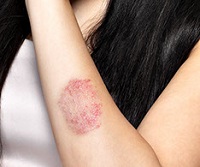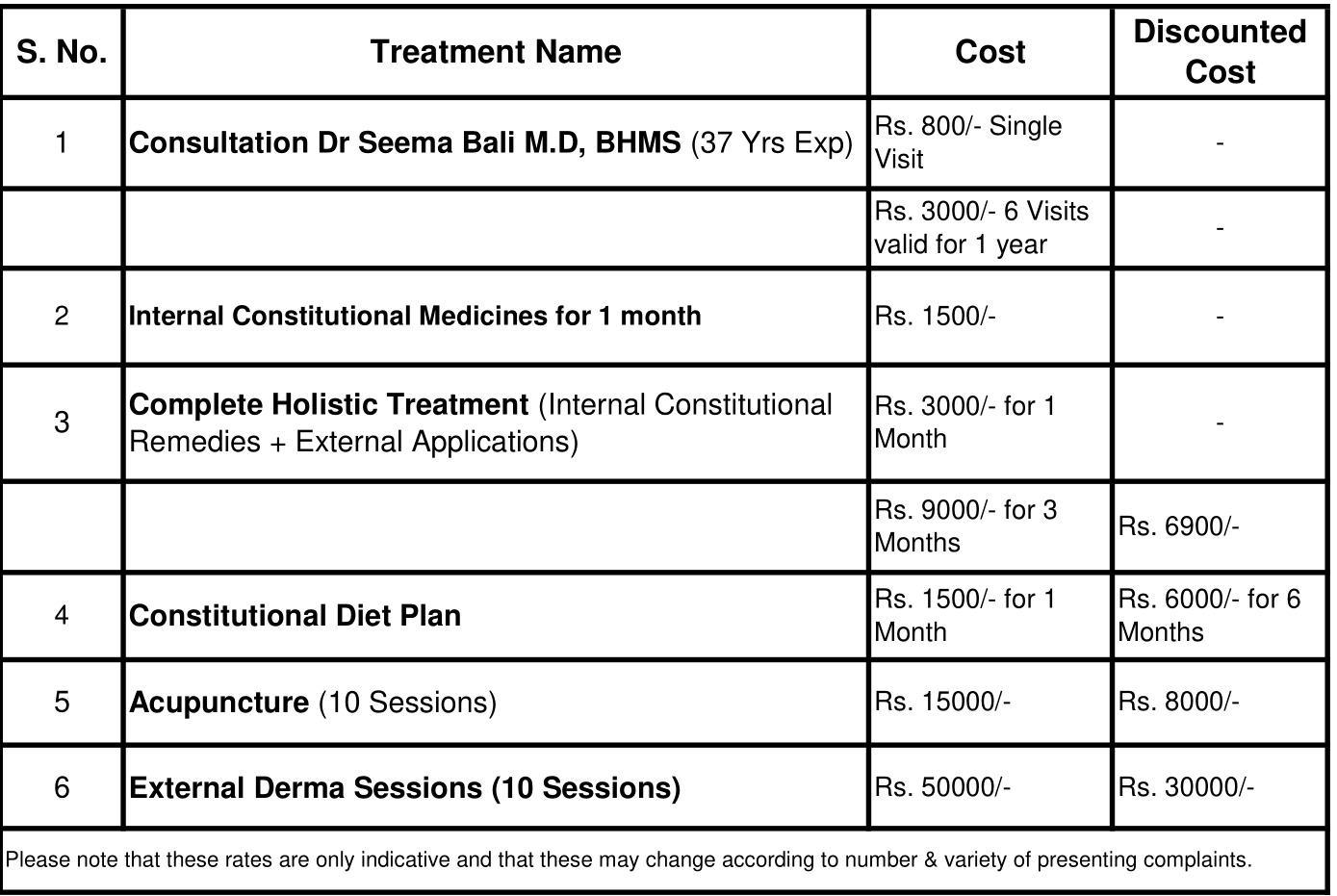Skin Diseases
Fungal Infection

Fungal infections represent the invasion of tissues by one or more species of fungi. They range from superficial, localized skin conditions to deeper tissue infections to serious lung, blood (septicaemia) or systemic diseases. Some fungi are opportunistic while others are pathogenic, causing disease whether the immune system is healthy or not.
FAQs about Fungal Infection
1. What are common signs of a fungal infection?
A fungus is a primitive organism. Mushrooms, mold and mildew are examples. Fungi live in air, in soil, on plants and in water. Some live in the human body. Only about half of all types of fungi are harmful. Some fungi reproduce through tiny spores in air. You can inhale spores or they can land on you. As a result, fungal infection often starts in the lung or on the skin. You are more likely to get a fungal infection if you have a weakened immune system or take antibiotics Common signs are: Itching, burning or both, peeling, cracking and scaling of the feet, redness, blisters or softening and breaking down of the skin.2. What do you do in Holistic Treatment at Valeda?
Holistic care means the care for the whole person that is his mind, body and spirit and not the disease/ problem/ symptoms alone. Holistic system believes that the whole person is made up of independent parts and if one part is not working properly, all the other parts will be affected. In this way, if people have imbalances physical, mental, emotional or spiritual in their lives it can negatively affect their overall skin and hair. Holistic treatment would thus not only remove the symptoms along with the underlying cause of your problem / disease but would then also maintain your overall well being. To attain the Holistic Wellness the doctors at Valeda have envisaged the easy path that constitutes a Procedure Plan and a Product Plan. The Procedure Plan shall include the Constitutional Diet and Constitutional Homoeopathic Medicines along with Divine Detoxification and Relaxation. The Product Plan includes selected external applications for management of problem symptoms.Holistic treatment at Valeda is practiced in partnership with doctors and their patients. We shall holistically diagnose the root causative factors of your problem and if need be then also by latest scientific modalities. The cause may not necessarily be into the problem area. It can be some other functional organ of the body. The cause may or may not be medically significant. The causative factors will decide the treatment strategy.
3. Can you suggest some local applications for the Fungal Infection?
Valeda Herbal Neem Skin Wash and Valeda Herbal Neem Skin Tonic.4. How long will the treatment last?
The best approach and duration of fungal infection is early detection and identification of the causal agent, so that appropriate treatment can be initiated as soon as possible. Important to successful treatment is compliance with what is sometimes a long course of treatment and good personal hygiene.5. Are there any side effects?
The remedies are sourced from natural substances, so there is zero possibility of side effects. As a positive they are credited with having a strengthening effect on the person's vitality and do not create addiction.6. Does fungal infection spreads on touching?
Fungal spores are passed between people through direct skin contact and by sharing objects such as towels,hairbrushes and bedding.Pets such as dogs and cats can have ringworms and you can catch it by stroking them. Itching and burning may worsen as the infection spreads. Yeast can also spread if you scratch the infection and then touch yourself elsewhere especially moist areas like the feet, groin and underarms.
Athlet's foot is commonly spread in gym and swimming pool changing rooms.
Yes the fungus can be spread by contact.
7. Where can I get more information and tips about my problems?
You can follow us on our blog, facebook page @valedaclinic and youtube channel @valeda doctor8. How much will the treatment cost?
Treatment cost will depend on the procedures recommended by the doctor taking the consultation. Recommended procedures depend on the nature of the problem and certain individual factors. Cost of some of the treatments & procedures for reference is mentioned in the following table:
Some common types of Fungal Infections are:
● Tinea Versicolor Tinea versicolor is also known as pityriasis versicolor. It is a fungal infection of the top layer of the skin, the epidermis. The yeast that is responsible for this rash loves oil glands, so teenagers and young adults tend to get tinea versicolor more often than older people.There is a treatment for tinea versicolor, but the infection often comes back. Fortunately, this infection doesn't cause any pain or itching.
● Jock Itch Jock itch, also known as tinea cruris, is a fungal infection of the skin in the groin. Fungi flourish in a warm, moist environment—and that certainly describes the groin. Women can get jock itch, though the infection tends to strike men.
Jock itch can be very itchy, as its name implies, but it usually responds well to over-the-counter fungal infection creams. Preventing jock itch involves keeping the groin as dry as possible and sometimes using an antifungal powder every day.
● Athlete's Foot Athlete's foot, or tinea pedis, is a common fungal infection of the feet. There are different types of athlete's foot infections, but the most common one occurs in between the toes. This infection causes intense itching and breaks down the skin, so it often looks like white goo between the toes.
Athlete's foot is typically treated with creams or lotions, but sometimes a severe case will require an oral antifungal medication.
● Ringworm Ringworm, also known as tinea corporis, is a common fungal infection of the skin. There are several fungi that can cause ringworm and they live in the epidermis.
Ringworm causes more symptoms than tinea versicolor, like itching and a noticeable rash. The rash consists of scaly, red patches or bumps that gradually turn into the shape of circles. It's treated pretty easily with a topical antifungal medication.
Why Valeda? How are treatments at Valeda different from any conventional mode?
Basis of treatment at ValedaThe basis of treatment at Valeda is treating the problem through Holistic Modes. A complete judicious program is required for the same.
The problem is not just external, there are many other causative factors in some other internal areas which are thoroughly analyzed during your consultation before starting the treatment.
The causative factors may not be necessarily based into the affected region and may be associated with disorders of internal organs.
It is, 'the nature of the problem' that calls in for the strategy of the treatment which may include internal remedies supported by external modalities like:- localized immune-enhancer activities to affected region i.e. acupuncture, applications of products with certified organic herbs, modernized cosmetology and procedures based on ancient principles as mentioned in classical text including Constitutional diet & Yoga. On examination by the concerned Doctor and on case taking these details are given to you as a routine procedure.



